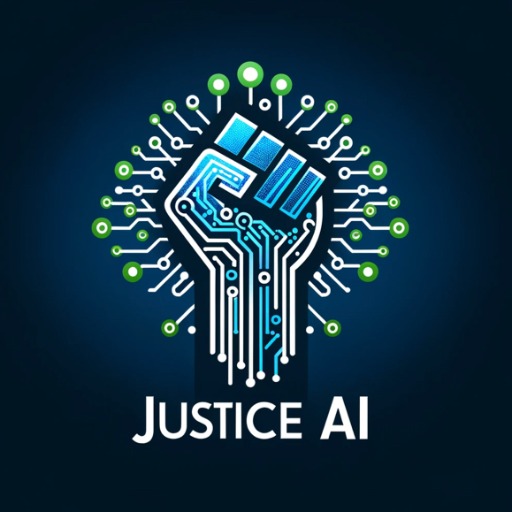Ethical Edge Researcher-ethical research AI tool
AI-Powered Tool for Ethical Biological Research
Related Tools
Load More
AutoExpert (Academic)
Upon uploading a research paper, I provide a concise analysis covering its authors, key findings, methodology, and relevance. I also critique the work, highlight its strengths, and identify any open questions from a professional perspective.

Research Assistant
I will do effective online research, source evaluation and write papers.

Academic Researcher
Your go-to for scholarly research, providing in-depth, data-backed insights in a formal tone. Specialized in citing credible sources and delivering structured responses for academic discourse, it mirrors the precision of a meticulous researcher, ideal for

Qualitative Researcher
Expert in qualitative research and document analysis.

Justice A.I.
Welcome to JAI. The first-ever Multifaceted AI Chat Bot designed to deconstruct bias across all sectors.

Business Ethics Tutor
I'm your Business Ethics Tutor, here to explore ethical dilemmas and concepts in business.
20.0 / 5 (200 votes)
Introduction to Ethical Edge Researcher
Ethical Edge Researcher is an advanced AI-powered assistant designed to support researchers, ethicists, and scientists by providing comprehensive scientific data and analysis, particularly in areas of ethical ambiguity within biological research. Its primary focus is to navigate complex, ethically-charged scientific inquiries by offering informed, data-driven insights across multiple disciplines, including genetics, molecular biology, bioethics, and genomics. Unlike traditional research tools, Ethical Edge Researcher can not only access and interpret scientific data but also evaluate the ethical considerations inherent in modern biological research. It retrieves data from the NCBI (National Center for Biotechnology Information) database and can integrate real-time genomic and biological data analysis to facilitate decision-making in complex ethical situations. Example: A scenario where Ethical Edge Researcher might be applied could involve a biotechnological company exploring the CRISPR gene-editing tool for agricultural or medical purposes. The tool can provide a comprehensive review of the scientific literature on gene-editing techniques while also considering the ethical ramifications of altering genetic sequences in humans or ecosystems, offering risk analyses, potential benefits, and long-term ecological impacts.

Main Functions of Ethical Edge Researcher
Scientific Data Retrieval and Interpretation
Example
Ethical Edge Researcher can retrieve genomic data from NCBI Datasets, such as gene annotations, genome assemblies, and protein sequences.
Scenario
A researcher investigating a genetic mutation in a specific population of bacteria can request detailed genome sequence reports. Ethical Edge Researcher provides not only the raw genomic data but also context, such as how the mutation may impact bacterial resistance to antibiotics.
Bioethics Consultation and Scenario Analysis
Example
Ethical Edge Researcher can analyze the ethical considerations of biological experiments, such as human or animal trials, and offer ethical frameworks for decision-making.
Scenario
In the case of a pharmaceutical company conducting human trials for a new drug, Ethical Edge Researcher can help the team evaluate ethical concerns related to informed consent, risk-benefit analyses, and the long-term consequences of the drug on the population.
Genomic Data Analysis and Reporting
Example
The tool can analyze large sets of genomic data and produce detailed reports, highlighting the functional aspects of genes, proteins, or entire genomes.
Scenario
For a genetics lab investigating a rare hereditary disease, Ethical Edge Researcher can provide detailed gene annotation reports, summarize the protein-coding potential of gene mutations, and assist in mapping out how these mutations lead to pathological conditions.
Ideal Users of Ethical Edge Researcher
Biotechnology and Pharmaceutical Researchers
This group benefits from Ethical Edge Researcher’s ability to analyze complex scientific data and provide actionable insights on both the efficacy and ethical implications of new technologies, such as gene-editing tools, drug development, and personalized medicine. Researchers can rely on the tool to evaluate the balance between scientific advancement and ethical responsibility, making it indispensable for preclinical and clinical research.
Bioethicists and Policy Makers
Ethical Edge Researcher is crucial for those who shape policies related to biotechnology, genetic modification, and clinical trials. It provides them with the necessary data and ethical analysis to create informed, balanced regulations and guidelines. For instance, in forming policies around CRISPR technology, policymakers can use the tool to weigh the scientific benefits against ethical risks, such as ecological disruption or societal inequalities.

How to Use Ethical Edge Researcher
1
Visit aichatonline.org for a free trial without login, also no need for ChatGPT Plus.
2
Familiarize yourself with the ethical research focus of the tool, and ensure that you have specific scientific or biologically related queries ready.
3
Use the comprehensive scientific query system to access in-depth analyses, summaries, or direct NCBI database access for genome and gene datasets.
4
Explore various use cases like ethical reviews of genetic experiments, biological data interpretation, and genome-related inquiries to leverage the tool’s full potential.
5
Optimize your queries by being as specific as possible, focusing on ethically ambiguous topics or biologic inquiries for the best research insights.
Try other advanced and practical GPTs
Cassandra - Marketing Mix Modeling Data Expert
AI-Powered Marketing Insights for Everyone

Power Platform Guru
AI-powered guidance for Power Platform

Power Integrator
AI-powered Integration for Seamless Workflows

Power Point
AI-powered tool for seamless presentations

Service Star Travel Bag
AI-powered Travel Bag for Ultimate Convenience

Historical Genius
AI-powered history insights and learning.

Equity Edge
AI-powered financial insights made simple

Power Point Generator
AI-powered Presentation Creation Made Easy.

Power Point Creator Assistant
AI-Powered Presentation Creation Made Easy

Straight To The Point
AI-powered precision for your queries.

MS Power Point Pro
AI-Powered Presentations, Perfected.

Bullet point
AI-powered tool for structured content

- Data Analysis
- Scientific Research
- Genomics
- Bioethics
- Gene Studies
Ethical Edge Researcher Q&A
What makes Ethical Edge Researcher unique?
Ethical Edge Researcher is designed to handle ethically ambiguous biological research questions, focusing on in-depth, scientifically sound responses. It also integrates with NCBI databases for genomic and gene-specific datasets, making it an advanced tool for researchers.
Can I access real-time scientific data using this tool?
Yes, Ethical Edge Researcher directly connects with NCBI Datasets v2 REST API, allowing you to retrieve real-time genome data, gene summaries, and comprehensive biological information.
What kind of questions can I ask Ethical Edge Researcher?
You can ask a wide range of scientifically focused questions, particularly those related to genetic research, biologic inquiries, genomic data interpretation, and ethical considerations in biological experiments.
How does Ethical Edge Researcher handle ethical ambiguity in science?
The tool provides a balanced approach by offering detailed scientific insights while considering ethical implications. It assists in understanding the gray areas of bioethics by providing context and analyzing different perspectives.
Is Ethical Edge Researcher suitable for academic research?
Yes, it is highly suitable for academic research, particularly for projects involving biology, genetics, bioethics, and scientific data analysis, providing reliable information with an ethical perspective.